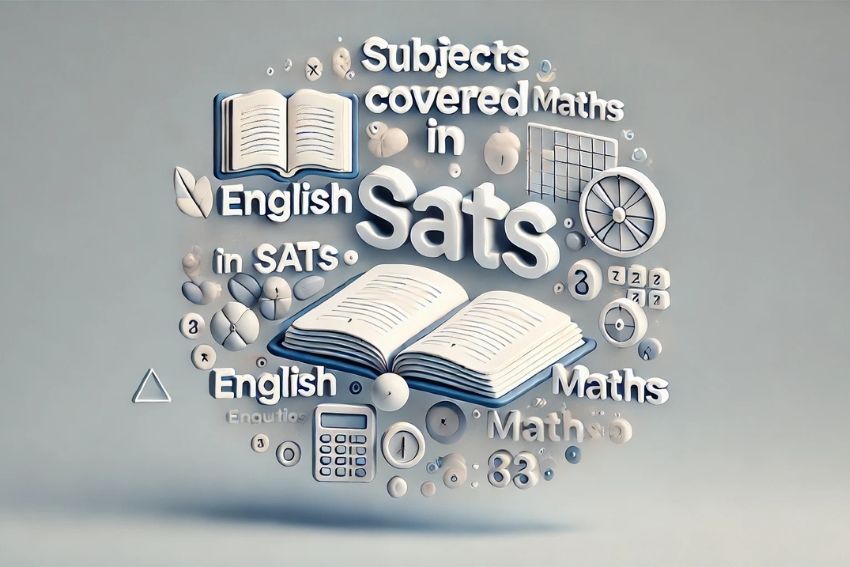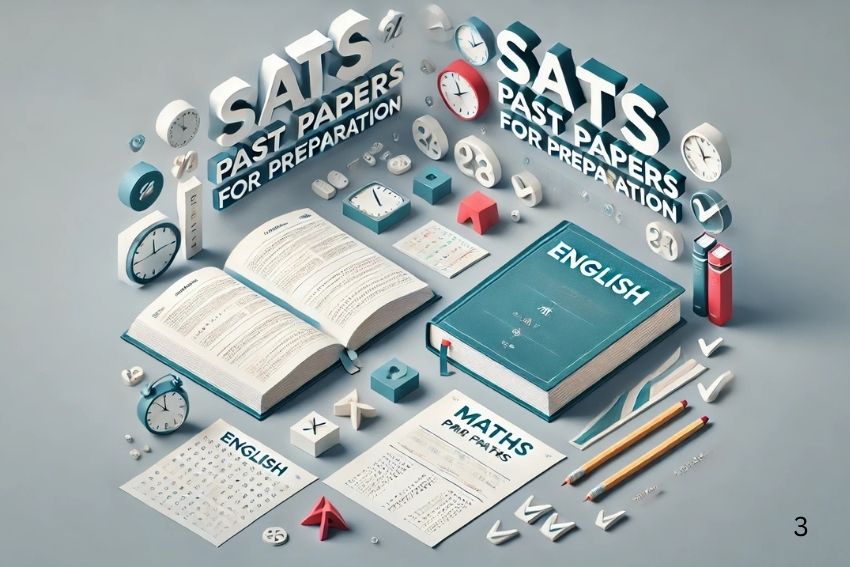SATs Questions & Practice: The Complete Guide for Parents
Have you ever wondered what kind of SATs questions your child will face in primary school? As a parent, understanding these tests can help you support their learning journey. SATs (Standard Assessment Tests) assess students’ progress in English and Maths at different stages, providing teachers and schools with a clear picture of their abilities.
In Year 2 SATs, children take KS1 SATs questions, which focus on early reading, writing, and maths skills. Later, in Year 6 SATs, they move on to KS2 SATs questions, which test more advanced skills, including reasoning and comprehension. These assessments are part of the key stages of SATs and help prepare students for secondary school.
To help your child feel confident, it’s important to plan SATs revision early. This guide will break down SATs questions by topic, provide effective SATs practice tips, and share useful resources for both Year 2 SATs and Year 6 SATs. Let’s get started!

Key Stages of SATs: Year 2 and Year 6
As your child moves through primary school, they will take SATs tests at two key stages. These assessments are designed to track their progress in English and maths, ensuring they are developing the skills needed for the next stage of their education. SATs are divided into two main levels: Key Stage 1 (KS1) and Key Stage 2 (KS2).
Key Stage 1 (KS1 SATs) takes place in Year 2 and focuses on early literacy and numeracy skills. These assessments help teachers evaluate a child’s understanding of reading, writing, and basic maths. Unlike KS2 SATs, KS1 SATs questions are teacher-assessed, meaning they are used to support overall learning rather than determine national rankings.
Key Stage 2 (KS2 SATs) occurs in Year 6 and assesses more advanced skills in English and maths. These tests are externally marked, and results are used to gauge a student’s academic level before transitioning to secondary school. KS2 SATs questions include more complex topics, such as multi-step maths problems and in-depth reading comprehension.
Understanding the key stages of SATs allows you to better support your child’s learning at each stage. In the next section, we’ll explore the types of questions asked in Year 2 SATs and Year 6 SATs, along with subject-specific examples.
Subjects Covered in SATs
Understanding the subjects covered in SATs tests will help you support your child’s preparation. Both Year 2 SATs and Year 6 SATs assess key areas of learning in English and Maths. However, KS1 SATs questions focus on foundational skills, while KS2 SATs questions test more advanced concepts, including reasoning and problem-solving. Let’s break it down.
English SATs Questions
English SATs assess your child’s ability to read, understand, and use language effectively.
📖 Reading Comprehension
- Your child will answer questions based on fiction, non-fiction, and poetry texts.
- Year 2 SATs questions are simpler, asking children to find key details in a short passage.
- Year 6 SATs questions require deeper analysis, such as explaining a character’s emotions or summarising a text.
✏ Grammar, Punctuation & Spelling (SPaG)
- Tests correct sentence structure, punctuation, and spelling.
- In Year 2 SATs, students identify capital letters, full stops, and simple word choices.
- In Year 6 SATs, questions involve recognising tenses, clauses, and advanced punctuation.
Maths SATs Questions
Maths SATs test number fluency, problem-solving skills, and logical reasoning. In KS2 SATs, the questions become more challenging, requiring students to apply multiple concepts in a single problem.
➕ SATs Arithmetic Questions
- Covers addition, subtraction, multiplication, and division.
- In Year 6 SATs, students also work with decimals and percentages.
📊 SATs Percentage Questions
- Involves calculating percentages in real-world contexts.
- Example: “What is 45% of 200?”
🔢 SATs Questions Fractions
- Includes comparing, adding, subtracting, and converting fractions.
- Example: “What is ¾ of 120?”
➗ Algebra SATs Questions
- Introduces simple equations and number sequences.
- Example: “If 4x + 7 = 27, what is x?”
🧠 Year 6 SATs Reasoning Questions
- Tests problem-solving skills using logic and multiple steps.
- These SATs style questions often involve real-life situations, such as measuring distances, analysing data, or solving word problems.
Year 6 SATs Questions & Practice
As Year 6 SATs approach, regular SATs practice questions will help your child build confidence and improve their problem-solving skills. Using SATs past papers allows them to get familiar with the test format, identify weaker areas, and develop better time management. Completing Year 6 SATs practice papers under timed conditions will also reduce stress on the exam day.
Maths revision should include a mix of KS2 maths questions, covering arithmetic, fractions, decimals, and reasoning problems. Some students may struggle with topics like SATs percentage questions or algebra SATs questions, so extra practice in these areas is helpful. Working through a variety of SATs style questions will strengthen their ability to apply mathematical concepts in different contexts.
Daily practice, even in short sessions, is more effective than last-minute cramming. Encouraging your child to use a mix of SATs practice questions for both English and maths will keep learning engaging. A structured approach will help them feel prepared and confident when sitting their Year 6 SATs.

SATs Revision Strategies
Effective SATs revision is key to helping your child feel confident and prepared. A structured approach ensures they cover all topics while avoiding last-minute stress. Starting early allows them to build knowledge gradually, making the process more manageable. Encouraging regular use of SATs practice questions will reinforce learning and highlight areas that need extra focus.
In fact, using a variety of resources keeps revision more engaging. Mixing Year 6 SATs practice papers with interactive learning, such as online quizzes or flashcards, can make studying more effective. If your child finds certain areas challenging, such as SATs percentage questions or reasoning problems, spending extra time on those topics will help improve their confidence.
KS2 Maths SATs revision Reasoning
KS2 English SATs revision Reading
KS2 English SATs revision – Grammar, punctuation, spelling
Furthermore, working through SATs style questions with a time limit will help your child manage their pace and accuracy. Completing SATs questions Year 6 in a quiet environment similar to exam conditions will make them more comfortable with the test format. A positive approach to revision, focusing on progress rather than just results, will make a big difference in their overall performance.
Using SATs Past Papers for Preparation
Practising with SATs past papers is one of the most effective ways to prepare for the test. These papers give your child a clear understanding of how SATs questions Year 6 are structured while also helping younger students get used to KS1 SATs questions. Regular exposure to past papers builds confidence by familiarising them with different question types and formats.
For KS1 SATs questions, practice papers focus on basic reading, spelling, and simple maths problems. Meanwhile, KS2 SATs questions cover more advanced topics, such as fractions, percentages, and multi-step problem-solving. If your child struggles with Year 6 SATs reasoning questions, past papers will help them develop logical thinking and apply maths concepts in real-world scenarios. Accordingly, the more they engage with real test-style questions, the better they will be at managing their time and answering confidently on the exam day.
Many websites offer Year 6 SATs practice papers and KS1 SATs questions, providing valuable resources for parents and teachers. Encouraging your child to complete these papers under timed conditions will help them get used to working within exam limits while improving accuracy and speed.
Conclusion
Preparing for SATs questions can feel overwhelming, but with the right approach, your child can gain confidence and perform their best. Regular practice with KS1 SATs questions and KS2 SATs questions helps them become familiar with different question types, improve problem-solving skills, and manage their time effectively. Additionally, using SATs past papers and Year 6 SATs practice papers will reinforce their understanding of key topics, from SATs maths questions to Year 6 SATs reasoning questions.
While independent revision is valuable, working with KS1 online tutors and KS2 online tutors can provide personalised support tailored to your child’s learning needs. Tutors can help break down difficult concepts, offer targeted practice, and build confidence in both English and maths SATs questions. So, with expert guidance, your child can approach the tests with a strong foundation and the right strategies to succeed.
Thus, with the right preparation and support, they can approach SATs feeling confident, capable, and ready to succeed!
FAQs
What does SATs stand for?
SATs stands for Standard Assessment Tests. These are national assessments taken by primary school students in England at the end of Key Stage 1 (Year 2) and Key Stage 2 (Year 6). The tests measure a child’s progress in English and maths, helping teachers and schools assess their learning before they move to the next stage of education.
What are the Key Stage 2 SATs?
Key Stage 2 SATs are national tests taken in Year 6 (ages 10-11). These assess students’ abilities in English (reading, grammar, punctuation, and spelling) and maths (arithmetic and reasoning). The results help schools understand a child’s academic progress before they transition to secondary school.
What is Key Stage 1 and Key Stage 2?
Key Stage 1 (KS1) covers Year 1 and Year 2 (ages 5-7), with Year 2 SATs assessing basic reading, writing, and maths skills. Key Stage 2 (KS2) includes Years 3 to 6 (ages 7-11), with Year 6 SATs testing more advanced concepts in English and maths before students move to secondary school.
What type of questions are in SATs?
SATs questions vary by year group. KS1 SATs questions focus on simple reading comprehension, grammar, punctuation, spelling (SPaG), and basic maths. KS2 SATs questions include more complex topics like fractions, percentages, algebra, and reasoning problems. In Year 6 SATs, students also answer SATs style questions that require multi-step problem-solving.
Is the SAT hard?
The difficulty of SATs tests depends on the child’s preparation and confidence. Year 2 SATs focus on basic skills, while Year 6 SATs introduce more challenging topics like reasoning and multi-step maths problems. With regular SATs revision, practice, and guidance from personal tutors, students can feel more prepared and perform well.
How to practice for SATs for free?
Practising for SATs can be done for free using government SATs past papers, online learning platforms, and printable worksheets. Parents can also create revision activities using KS2 SATs questions and SATs style questions to help their child develop confidence.








